Agatha and the Sugarmunch
Agatha finds a torn notebook and accuses Cyryl. He says it wasn’t him but some... Sugarmunch. Soon, the Sugarmunch snatches up a book from Agatha that she was reading to Cyryl and tears a page. The Sugarmunch is most interested in the story about a piper who led rats away from the city because the Sugarmunches have the same problem. Agatha decides to help the Sugarmunches and takes Klementyna the Frog along to drive the rats away with her singing. On their arrival it turns out that the Sugarmunches live underground with moles. Agatka helps them make up and become friends. In the real world Julek, Agatka’s brother, patches up the torn page and reminds her to be more careful in the future...
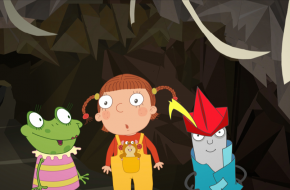
All that really matters
The film is a story of the moving love of Ola and Aleksander Wat. In the ‘30s, Wat, a
famous Polish futurism poet, belonged to the bohemians sympathizing with communism.
His wife Ola, one of the most beautiful ladies of pre-war Warsaw, was the
pride of literary salons. World War II breaks out. The Wats and their little son flee from
Warsaw taken by the fascists to the eastern territories of Poland. They fear Germans.
They are Jewish. Here, the Soviet occupation takes them by surprise. Wat is arrested,
while Ola and her son are deported deep into Russia, to Kazakhstan, where they work
in the fields of sovkhoz together with other Polish exiles. Being a Jewess and the wife
of a communist, Ola is boycotted by Poles. At the same time, she struggles against the
advances of a Soviet commander madly in love with her. She desperately fights for her
and her son’s survival. She goes through the horrors of hunger, fear and humiliation. All
this time believing that finding her husband is possible. Finally, she is sent to prison,
where, beaten and tortured, she accepts Soviet citizenship in return for a promise of
meeting Aleksander. A Soviet officer releases her from prison telling her that her husband
is dead. When Ola lies in bed, mentally destroyed, lacking the will to live, having
lost faith in what matters most, dependent on her son’s care, at the threshold of her
bedroom there appears... Aleksander. Ola, Aleksander and Andrzej are reunited. Forever.
They come back to Poland. However, their last port of call turns out to be France.
famous Polish futurism poet, belonged to the bohemians sympathizing with communism.
His wife Ola, one of the most beautiful ladies of pre-war Warsaw, was the
pride of literary salons. World War II breaks out. The Wats and their little son flee from
Warsaw taken by the fascists to the eastern territories of Poland. They fear Germans.
They are Jewish. Here, the Soviet occupation takes them by surprise. Wat is arrested,
while Ola and her son are deported deep into Russia, to Kazakhstan, where they work
in the fields of sovkhoz together with other Polish exiles. Being a Jewess and the wife
of a communist, Ola is boycotted by Poles. At the same time, she struggles against the
advances of a Soviet commander madly in love with her. She desperately fights for her
and her son’s survival. She goes through the horrors of hunger, fear and humiliation. All
this time believing that finding her husband is possible. Finally, she is sent to prison,
where, beaten and tortured, she accepts Soviet citizenship in return for a promise of
meeting Aleksander. A Soviet officer releases her from prison telling her that her husband
is dead. When Ola lies in bed, mentally destroyed, lacking the will to live, having
lost faith in what matters most, dependent on her son’s care, at the threshold of her
bedroom there appears... Aleksander. Ola, Aleksander and Andrzej are reunited. Forever.
They come back to Poland. However, their last port of call turns out to be France.
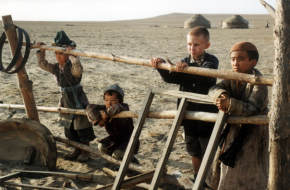
Anatomy of Evil
Lulek, 65, a hired killer on a parole is offered a job and a sniper
rifle by a prosecutor who had sent him to prison in the first place.
Lulek is to kill the commander of the Central Bureau of Investigation.
The prosecutor acts on behalf of a wealthy businessman. Lulek starts
training but it turns out he’s acquired a vision defect which makes it
impossible for him to accomplish the mission. He can’t refuse, though,
as his choice is going either back to prison or money and a chance to go
abroad. He takes on Stasiek, a sniper, degraded and dishonourably
discharged from the army for mistakenly killing civilians in
Afghanistan. Lulek introduces himself to Stasiek as a senior
counterintelligence officer and assigns him a special mission. The prize
is returning to the army, this time to serve in counterespionage.
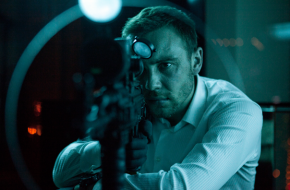
Arabian Nights – Vol. 3: The Enchanted One
The final part of the trilogy focuses on the story of Scheherazade fleeing the sultan’s palace. It juxtaposes her love adventures against a story about unemployed men preparing birds for a singing contest and against images of anti-government demonstrations which took place in November 2013 in Lisbon.
The director imbues the film with subtle irony, humour and melancholy. Hypnotizing the viewer with hot sunny shots, like in a fado song, he shifts focus onto what lies behind a loss and unfulfillment.
The director imbues the film with subtle irony, humour and melancholy. Hypnotizing the viewer with hot sunny shots, like in a fado song, he shifts focus onto what lies behind a loss and unfulfillment.
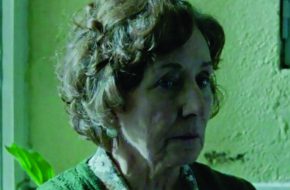
Arabian Nights – Vol. 1: The Restless One
Some think that not only does Portugal lie at the edge of the continent,
but also at the edge of the world. Its unreal character has become one
of the themes in a triptych by Gomes, who overlaps his homeland’s modern
history with a poetic structure of a loose interpretation of “One
Thousand and One Nights”. At the very beginning of this odyssey he
introduces the subject of the 2013-2014 economic crisis. A story about
shipyard employees in Viana do Castelo, who fell victim to mass
redundancies, is interwoven with the story of Scheherazade, one of many
extraordinary figures in his gallery of wonders.
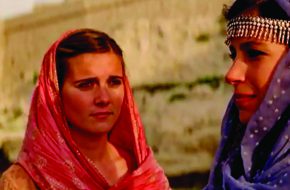
Arabian Nights – Vol. 2: The Desolate One
A multilayer story about the Portugal spirit in times of crisis, wandering between the past and the presence, between realism and fable - both in terms of film means of expression and the level of fictional story. The second part of the trilogy begins with the story of a mysterious Simão - a killer eluding the law, seen as a local hero.

Art of Disappearing
1980. Poland is in an economic crisis, grey is the predominant colour and the people are full of prejudice and prudery forced on them by the political system and religious upbringing.
This is when a group of Haitians invited by Jerzy Grotowski, one of the reformer of Polish theatre, comes to Poland. There is a young voodoo priest, Amon, among them, who has Polish blood running is his veins. His ancestors were Polish legionnaires of the Napoleonic era. A fascination with the country of his forefathers awakens in Amon and he decides to stay here for longer to help his new homeland and open the Polish hearts and minds. When martial law is imposed on 13th December 1981, Amon performs a ritual to drive out the evil forces from General Jaruzelski’s soul.
The film received Special Mentions at the festivals in Jihlava and Montreal.
This is when a group of Haitians invited by Jerzy Grotowski, one of the reformer of Polish theatre, comes to Poland. There is a young voodoo priest, Amon, among them, who has Polish blood running is his veins. His ancestors were Polish legionnaires of the Napoleonic era. A fascination with the country of his forefathers awakens in Amon and he decides to stay here for longer to help his new homeland and open the Polish hearts and minds. When martial law is imposed on 13th December 1981, Amon performs a ritual to drive out the evil forces from General Jaruzelski’s soul.
The film received Special Mentions at the festivals in Jihlava and Montreal.
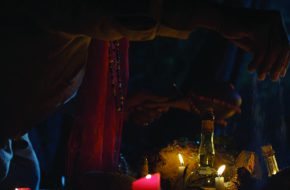
Art of Freedom
How is it possible that in the ‘70s and ‘80s, in the times of the Polish People’s Republic, at the height of real socialism, Polish mountaineers were the best in the world? How could the inhabitants of a country where the average monthly salary amounted to 20 dollars organise expensive trips into the Himalayas?
They did not have the money, modern gear or the freedom to travel. Nevertheless, they reached the summits of the highest mountains of the world. At the very peak of real socialism they were proving that a desire for freedom, courage and ambition make it possible to cross any boundaries.
“I’ve never been able to reconcile to returning empty-handed” - Jerzy Kukuczka, the legend of the Polish mountains, admits in one of the scenes.
The film has won awards at the festivals in Bilbao, Vancouver, Kathmandu, Chicago, Zakopane and Domzale.
They did not have the money, modern gear or the freedom to travel. Nevertheless, they reached the summits of the highest mountains of the world. At the very peak of real socialism they were proving that a desire for freedom, courage and ambition make it possible to cross any boundaries.
“I’ve never been able to reconcile to returning empty-handed” - Jerzy Kukuczka, the legend of the Polish mountains, admits in one of the scenes.
The film has won awards at the festivals in Bilbao, Vancouver, Kathmandu, Chicago, Zakopane and Domzale.


